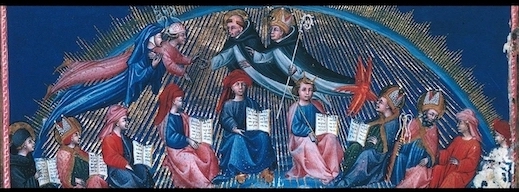Os carismas fundacionais e sua legislação universal e particular
Palavras-chave:
Charism, founder, consecrated life, canon law, theology of the founders, institutes of consecrated lifeResumo
O artigo analisa a gênese dos carismas, como dão origem às diversas formas de vida consagrada, e como estas são reunidas, classificadas e codificadas pela Igreja. Veremos que existem cinco tipologias que enquadram em si toda a vida religiosa: 1) com referência à prática dos conselhos evangélicos; 2) com referência à prática da vida fraterna; 3) com referência à ordem sacra; 4) com referência à aprovação recebida; e, por fim, 5) com referência à condição masculina ou feminina. A principal é a primeira, e dentro desta existem três grupos: 1) o dos que tendem à perfeição através da profissão dos conselhos evangélicos, por meio de “votos ou outros vínculos sagrados” (c. 573, § 2); 2) o dos que tendem à perfeição através da prática dos conselhos evangélicos, “por meio de algum vínculo determinado pelas constituições” (c. 731, § 2); e, 3) o dos que buscam a perfeição pela observância das constituições (c. 731, § 1). Em seguida, o autor destaca a necessidade de inserir nas constituições as normas do direito universal que se aplicam ao próprio instituto, salientando a importância que a Igreja dá ao direito próprio, concedendo “justa autonomia de vida” (c. 586, § 1) aos institutos, a fim de conservarem na sua integridade o carisma fundacional. Por fim, fornece um esquema do direito próprio e uma explicação do mesmo. /// This article examines the genesis of charisms, as giving rise to the diverse forms of consecrated life, and how they are grouped, classified and coded by the Church. It will be seen that there are five typologies that frame the whole of religious life: 1) with reference to the practice of the evangelical counsels, 2) with reference to the practice of fraternal life, 3) with reference to sacred orders, 4) with reference to the approval received; and finally 5) with reference to the condition masculine or feminine. The principal one is the first, and contains three groups: 1) those which strive for perfection through the profession of the evangelical counsels through “vows or other sacred bonds” (c. 573 § 2), 2) those which strive for perfection through the practice of the evangelical counsels “by some bond defined in the constitution” (c. 731 § 2), and 3) those which strive for perfection through the observance of the constitutions (c. 731 § 1). Following this, the need stands out to insert in the constitutions the norms of universal law that apply to the institute itself, emphasizing the importance that the Church gives to particular law, conceding institutes “just autonomy of life” (c. 586 § 1), in order to preserve the foundational charism intact. Finally, an organogram of particular law is supplied and an explanation of it.Edição
Seção
Articles






